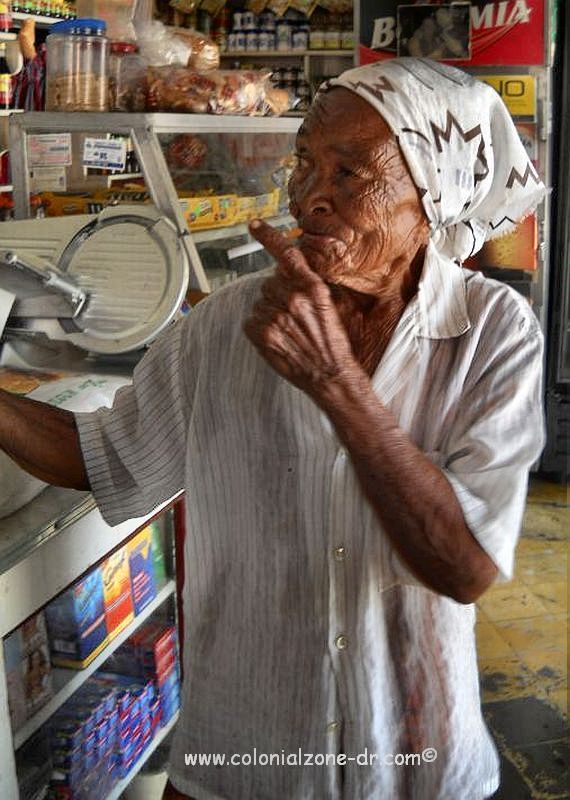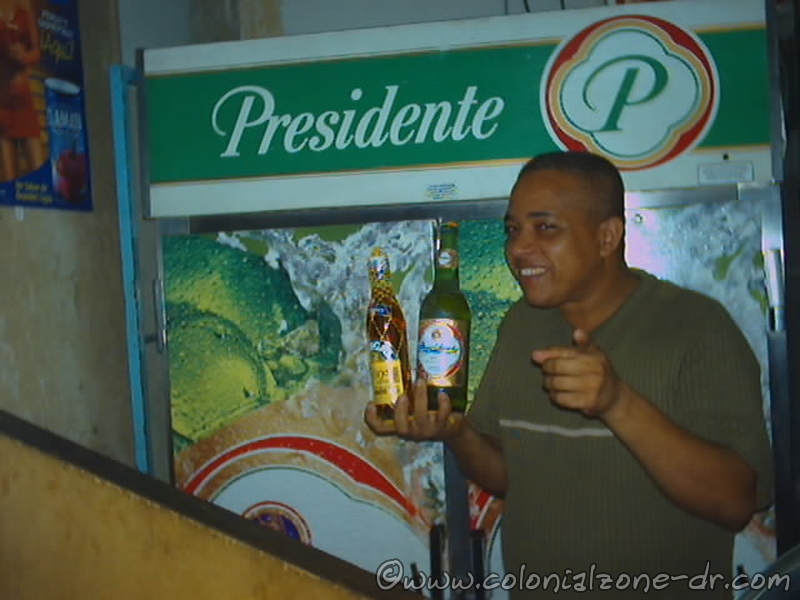DOMINICAN SAYINGS and IDIOMATIC EXPRESSIONS
Funny and interesting sayings, proverbs, maxims, adages and terms used by our Native Dominican Speakers in their everyday conversations. Many of these sayings and words are very difficult to understand but when you finally get the idea they can be quite funny.
When you use these idiomatic expressions in Dominican Republic make sure you pronounce them like a Dominican and be sure you are able to laugh at yourself. This way people know you are making a joke so you are not taken the wrong way. In time, you will know more of the Dominican way and will be talking in true Dominican style.
*A buen hambre no hay pan duro – (When you are really hungry no bread is too hard to eat) Where there is a will there is a way.
*A caballo resaldo no se le mira el diente – Never look a gift horse in the mouth
*A falta de pan, casabe, dice el pueblo. – (When there is the lack of bread, eat cassava, said the people) Make do with what is available.
*A la brigandina – to do something fast
*A paso de tortuga – (Walks like a turtle.) When someone is too slow.
*Abrir gas – (Open gas.) To run away. Full throttle.
*Acostarse con las gallinas – (Lying with the chickens.) To go to bed at the same time as the chickens. Go to bed very early.
*Amarrando la chiva – (literally means roping the goat) To do nothing when you are supposed to be working, because roping a goat is too easy
*Amarrar los perros con longanizas – (Tie dogs with sausages) To be very naive and give away opportunities to the enemies.
*¡Ay, mi madre! – (literally Oh, my mother! ) An exclamation to mean “oh man!” or can also mean like Wow! sort of a surprised expressive remark
*Caerle a la conga – (literally Playing the drums) To jump on someone intending on beating him up
*¿Cómo e’tamo’? – country way of saying ¿Cómo estamos? How are we today?
*¿Como ‘ta la cosa? – How’re things?, How’s it goin’?
*Conocer al cojo senta’o – (Literally, Recognize the cripple, even when he’s sitting down.) To know someone’s intentions when they haven’t told anyone. (updated by Rachel)

*Cuando cuca bailaba – When people refer to the good old days. When they talk about the old times.
*Curarse en salud – To practice prevention even before there is a problem
*Date brillo cadenita que tu mojo llega – Shine now for your day will come
*Despues de la excusa, nadie se queda mal – After the excuses were given, everybody got along fine
*E’ palante que vamo – We are going to go forward (election campaign slogan)
*E’ pa’ fuera que va – Out it will go (election campaign slogan)
*El carro quedó debaratao’ – When a car receives a violent hit
*El que anda con perro a ladrar aprende – He who hangs out with a dog will learn how to bark
*El que quiere moños bonitos tiene que aguitar halones – (literally: If you want nice hair you have to pull it tight) If you want something you need to work hard for it.
*Entrar a comer ojos – to go – Between a rock and a hard place
*Es mejor andar solo que mal acompañado – Better to go alone than to keep bad company
*Eso lo sabe hasta la madre de los tomates – (Everyone knows even the mother of the tomatoes.) Everyone knows it,
*Estoy entregado en ……….. – like saying “I am up to my eyeballs in ___ (something-fill the blank).
*Gallina vieja da buen caldo – (Old hens make a good broth.) To express that a mature woman has more experience and that adds to their sex appeal.
*Hacerse el chivo loco – (Become the crazy goat.) To play dumb and unaware. To be irresponsible.
*Ir por la sombrita – To walk in the shade of a tree
*La mama de Tarzan – used to describe a something cool or a good looking person
*La piña está agria – (literally: The pineapple is sour.) When something is difficult (dura)
*Llegó la lú – (Here come the lights!) What is said when the electric service comes back on.
*Lo agarraron asando batatas – (They caught him roasting sweet potatoes.) He got caught with his pants down
*Lo que va, biene – (What is going, comes) What goes around comes around
*Má caliente que una vieja metía en fiesta – Hotter than an old woman on a party mood.
*Me da grima. – It scares me
*Me hizo plancha – when a person does not go to something that they committed to.
*Me llevó el diablo -(literally: the devil took me) I am damned
*Me tienen en un tirijala – when someone says I’ll see you soon or I’ll soon be there.
*Ni con Dios ni con el Diablo – Neither with God or the Devil
*Ni fú ni fá – when something is congested or stuck, you can’t move forward or backward

*Niágara en bicicleta – to overcome many problems, to go over the waterfalls on a bicycle. It is also the name of a song by Juan Luis Guerra (updated by Rachel)
*No Dar Un Golpe – not to deliver an attack or not to work
*No hay problema. – No problem
*No’ vemo- (Nos Vamos) – I’m gonna go.
*Nunca digas de esa agua no beberé – (Never say from that water I will never drink) Don’t say you will never do something because you may have to do it someday. You may regret those words someday.
“Un clavo saco otro clavo” (literally meaning “one nail raises another nail”). Used when you have a hangover and need another drink to make it better. “Hair of the dog that bit you” is the equivalent in English.
*Pa’ seguida – right away; immediately
*Pajaro de cuenta. – People will call you this if you are not a very trustworthy person. Tamaño pajaro – this is even less trustworthy than the first.
*¡Por la maceta! – Very good; excellent; great!
*Probando e que se guisa – By trying is how you will know
*Que aperidá. – Used when something is amazing
*¡ Que Leche ! – If you win at the lottery or get a really good job you say this. Sort of like saying you’re in the cream now.
*¿Que lo Que? – the same as ¿que pasa? What’s up? What’s happenin’?
*Saber más por viejo que por diablo – To say that old age gives wisdom
*Sacar los pies – to move away, get away from a person
*Se fue corriendo – (literally went away running) to run fast, go full throttle, fast
*Se lo llevó quien lo trajo – sort of like you brought it upon yourself. When someone has a big problem the response is this, ( you made your bed now sleep in it)
*Si dios quiere – God willing. Not necessarily religious. I think its used just in case what was planned to happen doesn’t, then the person feels they can always use it as an excuse, “God didn’t want it to happen”
*Si la vaca ha venden por libras, porque comprar la vaca entera?- If you can buy the cow by the pound why buy the entire cow? (referring to having a woman for the night or for always)
*Si tomas Brugal tú resuelve o peleas. – If you drink Brugal (rum) you either fight or have sex.

*Ta que echa chi’pas – (literally throwing sparks) means being angry.
*Te llamo pa’ tras – (in true Spanish-devolver la llamada) I will call you back
*Te conozco bacalao, aunque vengas disfrasao-I know you even if you are in disguise, “you can’t hide your intentions from me”
*Te subi lo vidrio – (Literally:shut the window) when you’ve had enough talking to someone or when you don’t want to hear them you shut the window on them.
*Tengo un arranque encima – to be in a bad economic situation
*tililí-tililí – repeating the same thing or story over and over
*’Toy feo pa’ la foto – (exact translation – I am ugly for the picture) things can’t be worst for me
*Tu eres muy jediondon y delicagao -You are very hard to please
*Tu ta como un aji picante -You’re mad as hell
*Tu ta’ pasao -“you have really crossed the line now!” more of a warning that a fight was about to break out. (added by Rachel)
*Tu ta’ muy quitao de bulla – What you call a person that is carefree
*Vamo hacer un coro – “Lets get together and hang out”
*Vamo pal pley – Let’s go play. Refers to baseball the “pley” is actually what they call the baseball field.(updated by Rachel))
*Vamos a Ver, quisas ahorrita – (Lets see, maybe later) when a Dominican really does not want to do something but they really do not want to say no.
*Yo estoy chivo con eso – “I’m doubtful about that”, to doubt something.
_____
In an interview with one time President Hipolito Mejia the president was told “Bread has gotten too expensive” Hipolito’s answer “Man does not live on bread alone, eat platano and yuca”. “Somos un pai de come ‘platano”
Leonel Fernendez campaign slogan – “E’ Pa Fuera Que Van” – “And ahead/ forward we go”
_____
Have a Dominican Slogan or image placed on T-Shirts, Womens tanks, boxers, g-strings, sweatshirts, mugs, baby clothes, hats and even dog size clothing. If you like you can even make your very own design and it can be placed on an item. Or buy an already designed item. If you want Dominican Republic related items do a search for Dominican Republic and there are pages of items. Check them out.






